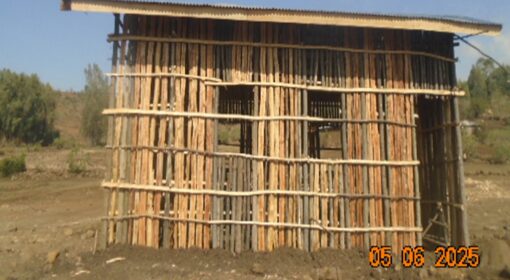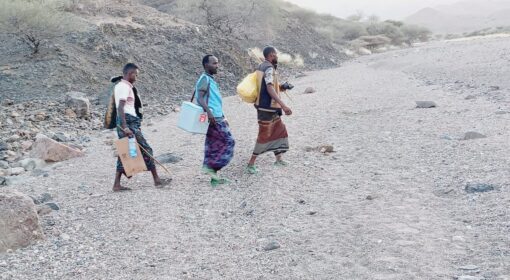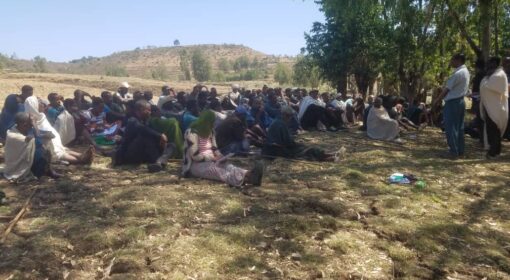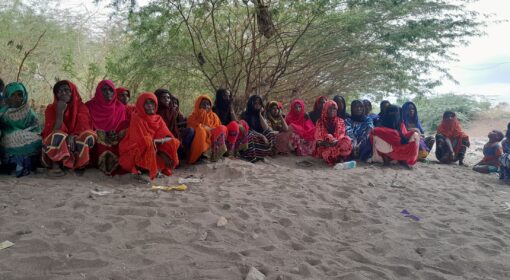By the APDA and ORDA teams with support from Nardos Masresha
This blog is part of a dossier on locally-led adaptation, featuring insights and lessons from the Reversing the Flow (RtF) program. RtF empowers communities in Bangladesh, Burkina Faso, Ethiopia, Kenya, and Sudan to build climate resilience through direct funding and a community-driven, landscape approach.
Accountability starts at the grassroots level
In the Afar Pastoralist Development Association (APDA) and ORDA Ethiopia project sites, accountability is not imposed from above. It begins within the communities themselves, organized through community-based organizations (CBOs) and Watershed User Associations (WUAs). These CBO’s and WUA’s committees represent a form of horizontal accountability in action.
Each CBO and WUA committee is transparently elected by local residents. Their bylaws clearly define the roles and responsibilities of both representatives and members, ensuring that accountability is embedded in community governance. Every household knows who represents them and how decisions are made. Lists of participating households are posted publicly or recorded, and representatives regularly report back in open gatherings. This visibility makes decision-making collective, transparent, and adaptable.
Community representatives identify priorities, prepare integrated landscape and watershed development plans, manage funds through local bank accounts, and share quarterly updates in accessible formats suited to local literacy levels.
Accountability structure in the Reversing the Flow program
At the foundation of RtF are these Community-Based Organizations (CBOs) and Watershed User Associations (WUAs), governed by local residents who plan, implement, and monitor landscape activities. These groups receive direct regrants to carry out restoration and livelihood initiatives. Acting as facilitating hubs, ORDA and APDA provide technical and financial support, verify fund use, and strengthen local capacities – without assuming control. Their mutual responsibilities are outlined in Memoranda of Understanding (MoUs) with each CBO and WUA, creating a two-way accountability system: communities report on progress and spending, while the hubs are answerable for timely support, capacity building, and transparent fund management. In other words: ‘a partnership of equals’, each side answerable to the other. By grounding accountability in local languages, public spaces, and open dialogue, RtF ensures that it remains a social process rooted in community trust rather than a purely bureaucratic exercise.
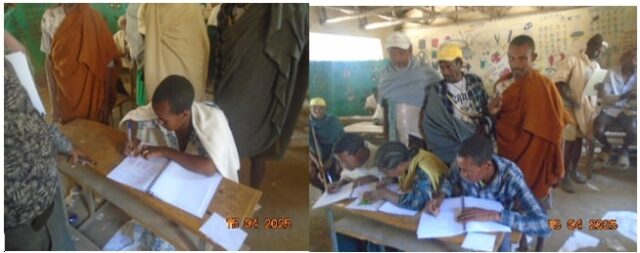
The structures built within RtF show that accountability does not need to be reinvented: it already exists at the community level. CBOs and WUAs have their own transparent systems of reporting, monitoring, and decision-making that are understood, respected, and enforced by their members. Hubs like ORDA and APDA strengthen these systems through facilitation and trust, proving that locally rooted institutions can maintain both social legitimacy and financial integrity.
For donors, the challenge is not to introduce parallel accountability frameworks but to recognize and legitimize these local ones. This means accepting community-driven reporting formats, valuing dialogue and learning as forms of evidence, and using trust as a metric of performance. By aligning donor requirements with existing local practices, accountability becomes a shared process rather than a burden.
This example raises three important questions:
- How can donors recognize and build upon existing local accountability practices rather than replacing them?
- What would it take for financial and reporting systems to reflect trust and dialogue instead of control and compliance?
- And how can accountability to communities become as central as accountability to funders?
